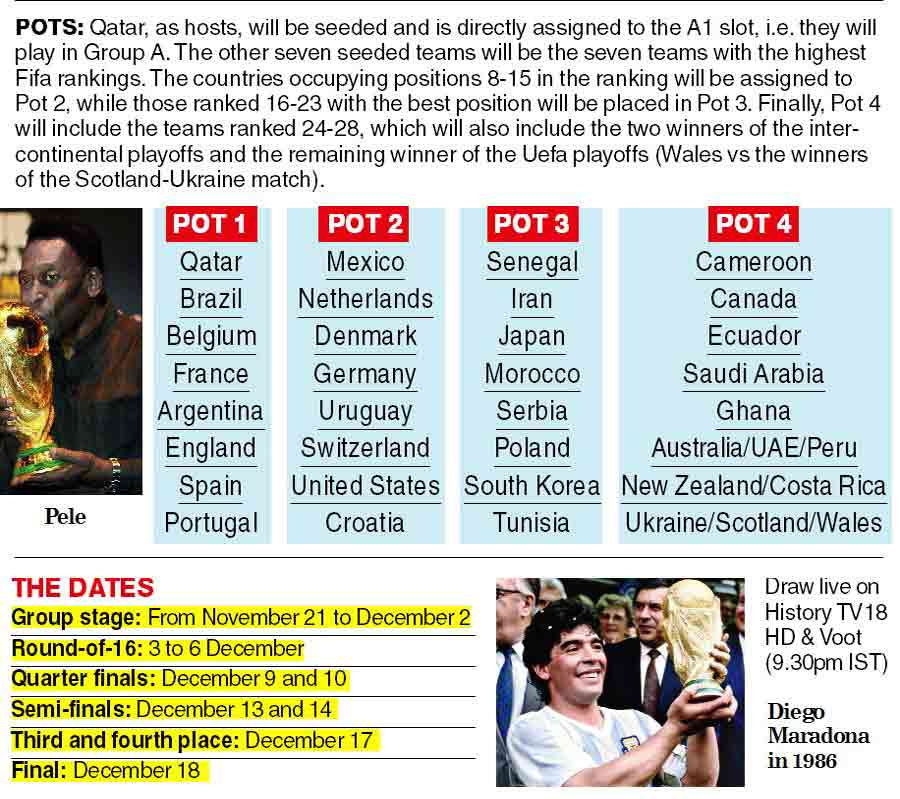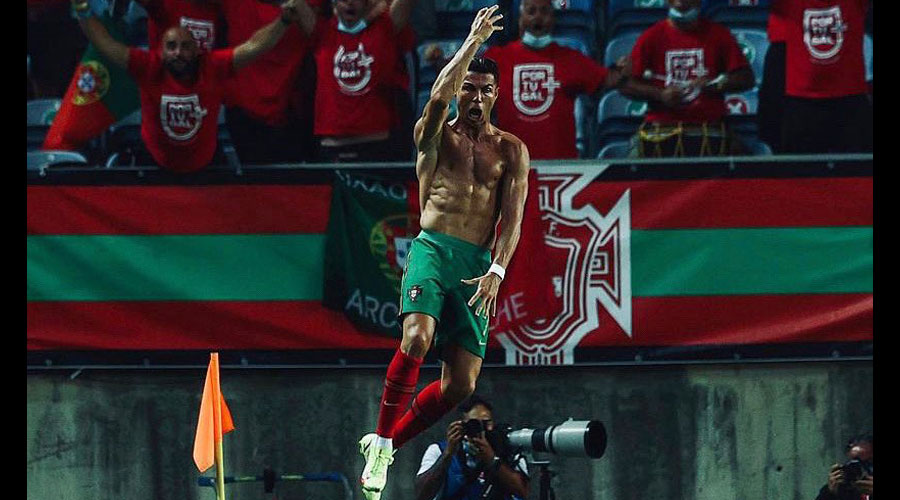Cristiano Ronaldo and Lionel Messi will learn on Friday their opponents for what is almost certainly their last World Cup finals when the draw is made for November’s tournament in Qatar.
The two biggest names in the game have collected a host of club and individual honours as well as continental trophies with their countries but neither has managed to crown his career with the ultimate prize of World Cup glory.
Portuguese forward Ronaldo, who is 37, and Argentine Messi, 34, are set to feature in their fifth World Cup finals — no player has appeared in six. The nearest Ronaldo came to winning the tournament was in his first attempt in Germany in 2006 when Portugal lost in the semi-final to France.
Messi’s Argentina were runners-up in Brazil in 2014 where they lost to Germany in the final in Rio. Neither player has indicated whether he will try to make a record sixth World Cup appearance or retire from international football after this year’s tournament but their ages suggest this may well be their final attempt.
Portugal and Argentina are among the top seeds, in Pot 1, meaning they will avoid a direct confrontation with one of the favourites in the four-team group stage. Defending champions France and five-time World Cup winners Brazil are the bookmakers’ favourites, with England, semi-finalists four years ago, also fancying their chances.
Although European champions Italy failed to qualify for the finals, the continent has plenty of serious contenders with Belgium, Spain and Germany also in the fray.

Good landing
Is there a “good” or “bad” section of the draw to land in? Maybe yes at this congested tournament, which will be four days shorter than the 2018 edition. Landing in Group B means starting on November 21 instead of November 24 in Group G or H. That means three extra rest days.
The Group G winners would have to play seven games in just 25 days to win the title. That team also gets just two full days off before a round-of-16 game on December 5. The draw is designed to ensure no group has more than one team from the same continental qualification zone apart from Europe. No group can have more than two Uefa nations.
Once the 32 teams have been divided into eight groups, it will be time to look ahead to the knockout rounds, as the schedule of matches has already been determined.










